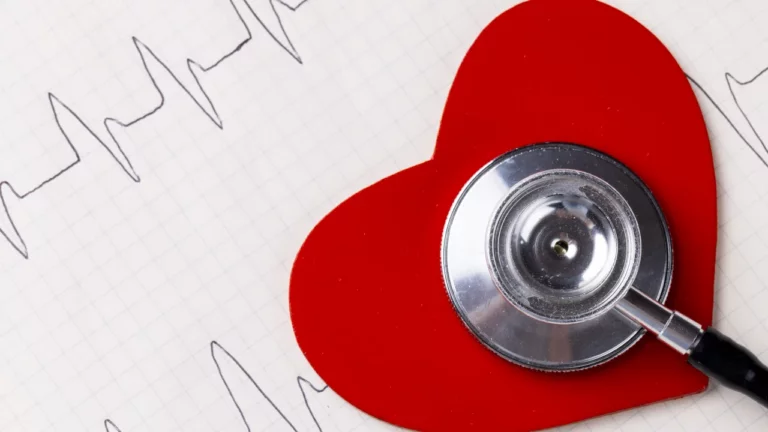Everyone is affected by stress. When disciplining your children, working through a tough period at work, managing your finances, or dealing with a difficult relationship, you may experience stress symptoms. There is stress all around us. While a little stress is fine (in fact, some stress is good for you), too much stress may wear you down and make you sick, both emotionally and physically.
Stress in times of COVID-19
Despite months of adjusting to a new norm and societal upheaval brought on by the COVID-19 pandemic, Americans are still grappling with the implications. The coronavirus pandemic is a substantial source of stress for nearly eight out of ten adults (78%). Furthermore, two-thirds of adults (67%) say they have experienced higher stress as a result of the pandemic.
When it comes to the physical and mental effects of increased stress, over half of respondents (49%) say it has had a negative impact on their behaviors. They most typically describe greater body tension (21%), “snapping” or becoming angry very rapidly (20%), sudden mood swings (20%), and screaming or yelling at a loved one (17%). These symptoms could be the result of pandemic-related stress, which is amplified by societal pressures that have been prevalent in previous years.[1]
Common effects of stress to our overall health
As it turns out, being stressed isn’t as horrible as you think. It can motivate and inspire you to provide your best effort and perform well under duress. But if you live in continual fear or concern about tomorrow, your mind and body will suffer. Living this way all the time might lead to you feeling out of sorts and having detrimental impacts on your health, emotions, and even personality. Observing your body’s early warning signs can allow you to recognize that these signs are your body’s natural response to advise you to slow down and find a way of calming down. The best way to protect oneself against stress is to pay attention to the warning signals of stress and then take action to reduce its negative consequences. Stress can lead to various health problems, some of which we should be careful of.
To our body
Stress may help your body’s ability to adapt to unfamiliar environments. A little bit of pressure can be beneficial to our well-being. Let’s say you’ve got a big exam or test coming up. When you’re under stress, your body may be able to work harder and stay awake for longer periods of time. However, it becomes a problem if the tensions persist or if you are unable to find time to relax.
If you’re stressed, it can affect every area of your body, from the skeletal system to the endocrine system, the digestive system, the brain system, and even the reproductive system. Three substances are synthesized by the body when it detects anything uncomfortable. Norepinephrine, adrenaline, and cortisol are the three primary stress hormones. Adrenaline and norepinephrine have a lot in common. Norepinephrine is also produced in the brain as a backup rather than solely in the adrenal glands. Alertness and awareness are its responsibilities. For fluid balance and blood pressure regulation, cortisol comes from the adrenal glands situated near the kidneys. There is no other place to achieve liquid equilibrium.
Stress can cause poor energy, feelings of inadequacy, and an inability to attain our goals. As a result of extreme distress, people may have alterations in their sleep patterns. When we don’t sleep well or don’t sleep at all, we may be suffering from insomnia. Sleeping too much can also be a cause. Anxiety can cause impotence, loss of sexual desire, and frequent sickness. If you are regularly ill or feel like you get sick more often than other people, there might be some persistent distress going on beneath the surface of your experience.
What other physical impacts might stress have on your body? A racing heart, weariness, trouble sleeping, headaches, dizziness, trembling, high blood pressure, muscle tightness, and jaw clenching, are all signs of stress in the body.
To our emotions
When under a lot of pressure, people may experience various negative emotions, including anxiety, depression, irritability, and rage. Some people are more susceptible to depression and anxiety due to long-term stress. It’s becoming more and more apparent how stress affects mental health.
Emotions and moods can be affected by stress. When people are under a lot of pressure, it’s not uncommon for them to become agitated and even angry. People under a lot of stress were more likely to become restless and enraged. As a result, the risk of coronary heart disease was raised. Stress, nervousness, agitation, a lack of motivation or attention, impatience, and a feeling of sadness or depression are all symptoms of anxiety.
To our behavior
There can also be changes in behavior as well when someone is suffering through periods of stress. These can be appetite changes, which could lead to changes in weight, either weight gain or weight loss.
Excessive stress for too long can also be a symptom of depression. Anxiety, a sense of nervousness or agitation, moodiness, irritability, anger. Or the shifts in mood from depression to anxiety and back again, or your ability to be angry and then lose it.
We can also feel overwhelmed when we are under stress, and there’s always the issue of loneliness and isolation. There is an argument that when someone is stressed, they want to be alone. It might be a time for recovery. But of course, there are some long-term issues that might come from long-term loneliness and isolation. We know that loneliness and isolation are associated with reduced immune function. Over or undereating, angry outbursts, drug/alcohol use, social withdrawal, sleeping too much or too little, relationship conflicts, crying spells, and avoidance/procrastination are commonplace.
Takeaway
Stress symptoms can impact your physical, mental and emotional well-being, and behaviors. Being able to recognize common stress symptoms can help you manage them. Stress that’s left unchecked can contribute to many health problems, such as high blood pressure, heart disease, obesity, and diabetes. It could also help predict who is at risk of developing a mental health condition, and uncover the best time to intervene to help prevent ill-health later on. Stress is a part of life. What matters most is how you handle it. The best thing you can do to prevent stress overload and the health consequences that come with it is to know your stress symptoms.
References:
- Stress In America™ 2020. (n.d.). https://www.apa.org/news/press/releases/stress/2020/report.








